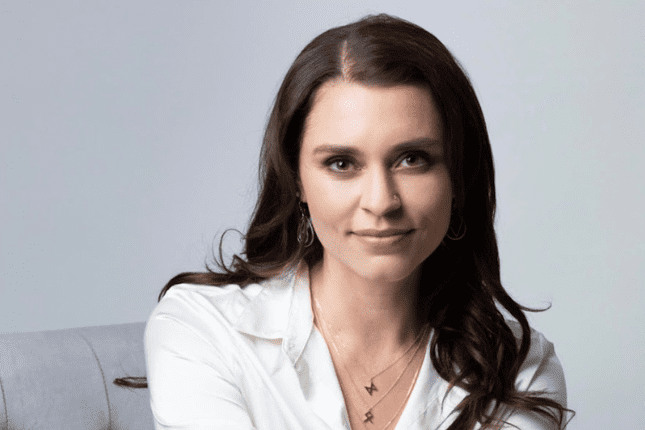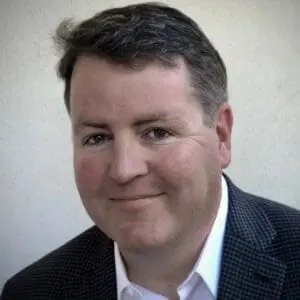In our current distancing state, couples are spending unprecedented amounts of time together. For some, it’s been a comforting gift to be with one another so fully. For others, it’s strengthened unhealthy emotional patterns. In cases where one or both partners were raised in traumatic family situations, pain from those early trauma bonds may be resurfacing, creating a toxic relational stew.
According to Laura Copley, licensed professional counselor and owner of Aurora Counseling & Well-Being, all couples are affected by how early attachments inform their adult relationships. She spoke with us about how her own traumatic background led her to investigate these bonds, and how to best help individuals interrupt the unhealthy, even dangerous, relational patterns they can create.
——
Ryan Howes: How did you become interested in toxic relationships?
Copley: Throughout my childhood, my mother struggled with drug addiction and was in and out of rehab and jail. I didn’t end up in foster care, but I was constantly moved around within my family system. My life was so disorganized growing up that I never learned what my role was in a family. I dealt with this as an adult by learning about why this relational trauma was happened in my life.
I can remember very clearly wanting to feel safe with my mother, be loved by her, and open my heart to her. But I was also petrified of her. I’d experience it as a literal physical battle between my parasympathetic nervous system, just wanting to relax and to love, but being so startled and afraid that I was reactive. For the longest time, I was closed off to love, affection, even being touched. Today, when I see that pattern of “I need you/go away” mirrored in the clients sitting in front of me, one of my go-to’s is to say, “What’s happening right now in your body, that feeling you’re having, makes 100 percent sense given what you went through.”
RH: What is a trauma bond and how does it manifest?
Copley: Think of it as the residual pattern from a childhood attachment trauma that remains in our unconscious and affects how we navigate the world. An adult may have a trauma bond if they’re unconsciously repeating a relational pattern in an attempt to get an unmet childhood need met. If they’ve been traumatized in childhood, their foundational idea of what “works” in relationship is off. For example, they may have learned that remaining silent or self-sacrificing keeps the peace. As adults, this type of person rarely self-advocates or speaks to what they need. Or maybe they learned as a child that to be seen they had to take their emotions to a 10 at all times. As a result, they may not know how to self-regulate what’s happening in their body as an adult.
An early cycle of love and abandonment tends to create a powerful emotional bond, especially when we cycle through it over and over again as we’re developing. The bond involves betraying the self in order to receive love.
The trauma bond can be an immovable thing. Learning this spurred me to dive into the realm of positive psychology and understand why certain people are mired in PTSD, while others find their way to resiliency, meaning-making, and posttraumatic growth. For trauma, a major healing factor is often an influential, healthy relationship. Just one positive relationship can be a beacon of hope and a stabilizing force.
In the initial population I studied, 18-25-year-olds, this influential other was usually a friend: somebody to go to after a trauma who proved over and over again that they were safe, loyal, and unconditionally loving. The healing aspects of friendships is an important topic for further research and to bring into the therapy room. Now my area of specialty is complex trauma, and when you’re working with more long-term neglect, abandonment, emotional abuse, and psychological suffering, more relational work is needed.
RH: So trauma bonds help us understand why some people can’t just leave a bad situation?
Copley: Absolutely. Some of the individuals who find their way to my office are being controlled or manipulated in a couple relationship. This is a common situation. One client came to me knowing that she needed to escape a particularly toxic bond. But every time her partner betrayed her, she’d also crave his comfort, and would talk herself into believing things would be better next time. Every time that pattern repeated, it would make her feel more ashamed of herself. The shame of not leaving became a reason to stay.
What helps break that cycle therapeutically is a mixture of psychoeducation, mapping out the toxic dance, identifying the client’s role in the dance, and helping the client recognize that their partner needs them to fill that role to make them feel like they’re worth something. Exposing them to the idea that their fragile inner child is holding onto the belief that their partner will deteriorate without them is a game changer. They start seeing their power in the dynamic.
RH: When people are emotionally victimized, it can be startling to realize, “Wait a minute, I didn’t know I was contributing something to this situation.”
Copley: It’s delicate and multifaceted. They must recognize their own self-agency. It’s what will help them get out of a trauma bond or toxic relationship or actually hold boundaries. But yes, the timing of this insight has to come after the initial phase of psychoeducation and profound validation from the therapist, who hopefully by then has become a grounding figure able to serve as a beacon of safety.
Also, we can teach our clients that they can have compassion and boundaries at the same time. Through clarity and owning what’s theirs, we actually see less martyrdom and more stabilization, which prevents the trauma bond from taking hold again.
We need to do the depth work of identifying the wounded inner child and what it would have looked like to be comforted in the way that child needed. Letter writing to and from the inner child, Somatic Experiencing techniques, guided visualizations—these are all ways that we can get to know that wounded part of us and identify that unmet need.
Finally, clients learn how to ask, “What it is that I truly need from safe figures in my life?”
RH: With COVID-19, we’re seeing how even the healthiest of couples are getting on each other’s nerves. I’d imagine that folks who are locked in this trauma bond could be experiencing this intensely.
Copley: It’s important to recognize that a trauma bond doesn’t have to play out as overt, obvious toxicity or abuse. So many couples out there have learned to be loved in ways that are transactional—“If you do this for me, I’ll comfort you” or “If you play this role, I’ll show you affection”—and it’s now exhausting them.
Maybe they don’t know why their partner doesn’t speak their love language or why they’re not getting their needs met. Also, with the children in the home, there are these intergenerational patterns that may create a lot of emotional payoff in the home that families are not wanting to pull apart.
Doing this trauma-bond work can help because it brings unhealthy dynamics to awareness. With awareness comes the opportunity to make changes and break patterns.
RH: What’s next for trauma bond work?
Copley: I’d like to see more work across the trauma bond spectrum. It’s not just explosive, in-your-face type trauma; we’re all susceptible to intergenerational patterns and unconscious agreements. I can’t tell you how many times I’ve had people in my office say they came from an intact, healthy family only to discover they were valued for something their parents needed them to be.
I’d also like to see more research, workshops, and clinical practice on unraveling the trauma bond as a couple. There is a perspective out there that the trauma bond is only between a victim and an abuser, which creates this stigma that there is always a “bad guy” in the story, generally labeled as a narcissist or sociopath. While this certainly happens, some trauma bonds can be worked through as a couple, especially if both parties are empathetic enough toward each other and willing to do the work.
For all our cases, we therapists need to slow down, take in the body cues, and ask, “How did you know you were loved or had value?”
Ryan Howes
Ryan Howes, Ph.D., ABPP is a Pasadena, California-based psychologist, musician, and author of the “Mental Health Journal for Men.” Learn more at ryanhowes.net.












